The Fraction Rite
Having taken the bread and the wine in the offertory, and blessed it in the Eucharistic Prayer, we now come to the breaking in the take/bless/break/give formula. This time is known as the fraction rite.
The Lamb of God is sung during the breaking of the host:
This calls to mind John the Baptist’s words in pointing out Jesus among us:
The next day he saw Jesus coming toward him and said, “Behold, the Lamb of God, Who takes away the sin of the world” (John 1:29).
Jesus is also called the Lamb in the Book of Revelation (5:12, 13:8), but we’ll visit that again in the future.
The final verse ends with “grant us peace.” The verse ending “have mercy on us” can be repeated as many times as needed to accompany the fractioning. It is not allowed to do variations on “Lamb of God” such as “Prince of Peace, you take away…”
While this is going on, the priest breaks a piece of the Host and places it in the chalice saying inaudibly:
May this mingling of the Body and Blood of our Lord Jesus Christ bring eternal life to us who receive it.
This reflects an ancient practice when bishops—especially the Bishop of Rome—would send acolytes with pieces of the Host from the Mass he celebrated to the other churches, where the particles would be placed into the chalice at Masses in other Churches. This was a sign of the Communion (unity) of the Church. The joining of the Body and Blood of Jesus was also seen as a symbol of the Resurrection.
It is the practice that during the Lamb of God, Hosts are brought from the tabernacle to be distributed, but the ideal is that what is distributed at a Mass should be consecrated at that Mass.
When the Lamb of God ends, the priest bows and says inaudibly one of two prayers, which are private prayers of the priest:
Lord Jesus Christ, Son of the living God, Who by the will of the Father and the work of the Holy Spirit, through Your Death gave life to the world; free me by this, Your most holy Body and Blood, from all my sins and from every evil; keep me always faithful to Your commandments, and never let me be parted from You.
or,
May the receiving of your Body and Blood, Lord Jesus Christ, not bring me to judgment and condemnation, but through Your loving mercy be for me protection in mind and body, and a healing remedy.
I tend to do the second, shorter prayer on weekdays that are not feasts or solemnities. The first I do on Sundays, Feasts and Solemnities and also all Masses during Lent. There is no Church rule on this, it is just my own personal pattern.
After the priest genuflects, he holds the host above the paten or chalice and says,
Behold the Lamb of God,
behold Him who takes away the sins of the world.
Blessed are those called to the supper of the Lamb.
Again the words of John the Baptist, in John 1:29—which we just heard last weekend—are echoed. In the Jewish understanding, the Lamb of God was the lamb that was sacrificed at the Passover. This time the words call us to look upon Jesus, the Lamb of God, present to us in the Eucharist. We behold our God present among us.
The last line merits some consideration.
Blessed are those called to the supper of the Lamb.
This is so much better than our previous translation,
Happy are those who are called to His supper.
“The supper of the Lamb” is meant to recall the text of Revelation 19:9, “Happy are those called to the wedding feast of the Lamb.” It reminds us that we, who are at the time at the earthly liturgy, are participating in the eternal, heavenly, Divine Liturgy. This is one of those moments when we note that time converges so the past, Jesus’ last Supper and His death on the cross, the present, our liturgy, and the future, the eternal liturgy of praise in heaven, all meet. We are also reminded that we are meant to strive to join in that heavenly liturgy.
We respond with another scriptural allusion. A Roman centurion approached Jesus asking for his son or servant, depending if it is Matthew (son) or Luke (servant) who is to be healed. He states his unworthiness for Jesus to enter into his house, “under my roof,” but expresses his faith that Jesus’ word can heal the son/servant. We, sons and daughters of God and servants of God, ask for God to make us worthy that He may enter into us in the Eucharist.
The priest says quietly,
May the Body of Christ keep me safe for eternal life.
and consumes a piece of the host. He then quietly says,
May the Blood of Christ keep me safe for eternal life.
and consumes from the chalice.
The priest must receive a Host consecrated at the Mass and must receive the Precious Blood for him to have celebrated the Mass.
The priest then presents the Host and the Cup to the deacon, if present.
